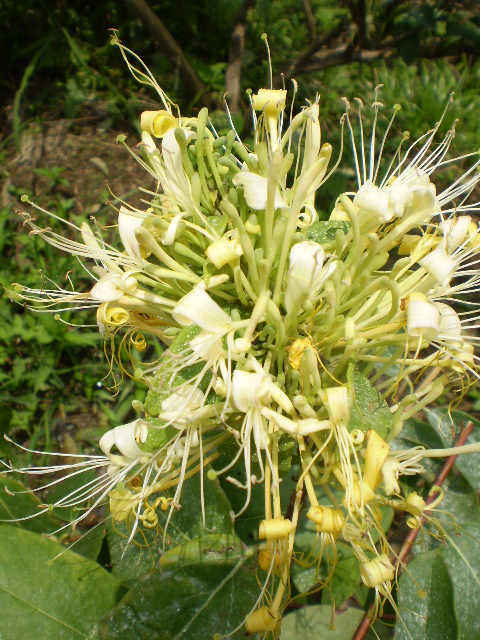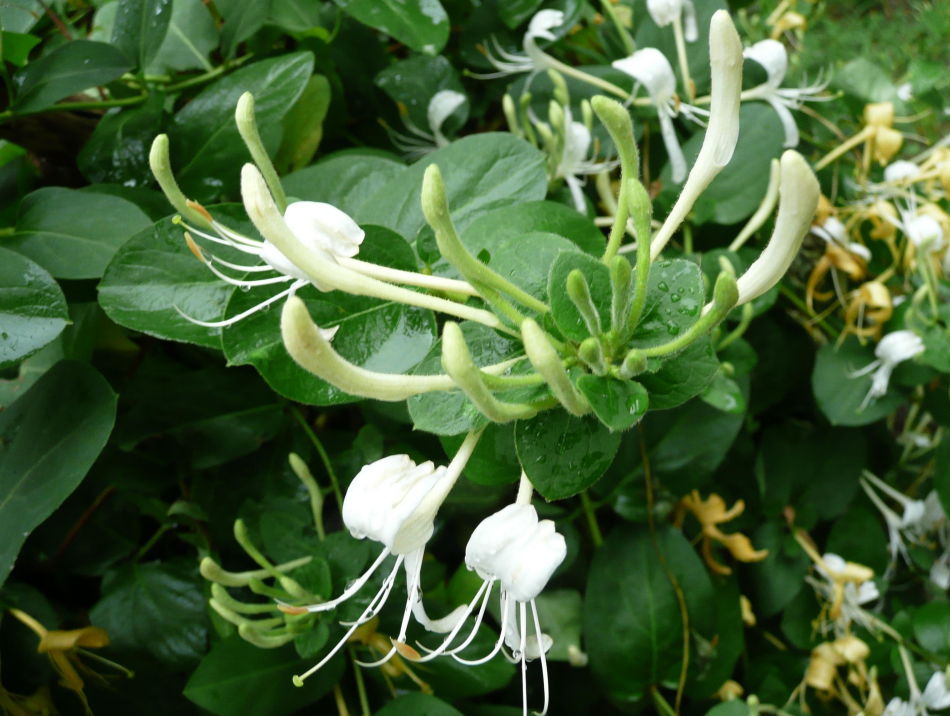- Liliaceae
- Lamiaceae
- Euphorbiaceae
- Leguminosae
- Zingiberaceae
- Chloranthaceae
- Campanulaceae
- Asteraceae
- Acanthaceae
- Orchidaceae
- Polygonaceae
- Ranunculaceae
- Vitaceae
- Rubiaceae
- Solanaceae
- Thymelaeaceae
- Saururaceae
- Moraceae
- Polypodiaceae
- Myrtaceae
- Araceae
- Adiantaceae
- Schisandraceae
- Amaranthaceae
- Berberidaceae
- Araliaceae
- Taxaceae
- Cucurbitaceae
- Apiaceae
- Guttiferae
- Scrophulariaceae
- Papilionaceae
- Caprifoliaceae
- Elaeagnaceae
- Apocynaceae
- Brassicaceae
- Papaveraceae
- Gentianaceae
- Paeoniaceae
- Lauraceae
- Punicaceae
- Nyssaceae
- Ephedraceae
- Gnetaceae
- Polygalaceae
- Violaceae
- Ginkgoaceae
- Cupressaceae
- Dipsacaceae
- Eucommiaceae
- Juglandaceae
- Dryopteridaceae
- Rosaceae
- Huperziaceae
- Caryophyllaceae
- Rhamnaceae

Lonicera. macranthoides
- Introduction
- Download
Blast
Lonicera. macranthoides, a plant distributed widely in south China, belongs to Caprifoliaceae and is often used in traditional Chinese medicine. In the 2010 Chinese Pharmacopoeia, L. macranthoides is registered as “mountain honeysuckle”. The entire plant of L. macranthoides, and particularly the buds and leaves, is used as medicine. Phenolic acids, flavonoids, volatile oils and saponins are major chemical components of L. macranthoides . These components predominately account for the multiple medicinal effects of L. macranthoides, which include antioxidant , detoxification, anti-inflammatory, anti-cancer , anti-cardiovascular disease and pain relief properties .
Year:2015
Institution:Genetic Engineering Research Center, School of Life Sciences, Chongqing University
Material: Chongqing, China
Data link: http://www.herbal-genome.cn/index.php?m=content&c=index&a=show&catid=100&id=89

Lonicera japonica
- Introduction
- Download
Blast
Lonicera japonica, In traditional Chinese medicine, Lonicera japonica is called rěn dōng téng or jīn yín huā. Alternative Chinese names include er hua and shuang hua. In Korean, it is called geumeunhwa. The dried leaves and flowers (Flos Lonicerae Japonicae) are employed in traditional Chinese medicine, being used to treat fever, headache, cough, thirst and sore throat.
Year:2012
Institution:Beijing Key Laboratory of Functional Genomics for Dao-di Herbs, Institute of Chinese Materia Medica, Academy of Chinese Medical Sciences
Material: -
Year:2016
Institution:Department of Molecular Biology and Biotechnology,Graduate School of Pharmaceutical Sciences, Chiba University, Inohana 1-8-1, Chuo-ku, Chiba 260-8675, Japan
Material: -
Year:2017
Institution:Department of Biotechnology, College of Life Science and Technology, Huazhong University of Science and Technology, Wuhan, China
Material: Beijing, China
Data link: http://www.herbal-genome.cn/index.php?m=content&c=index&a=show&catid=100&id=88